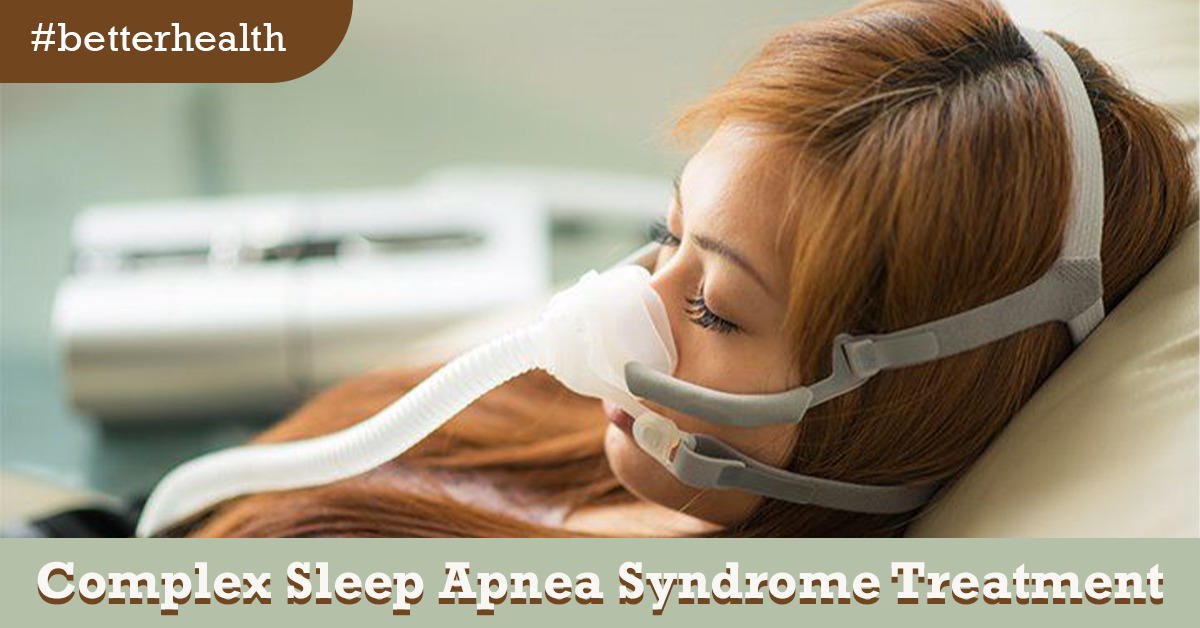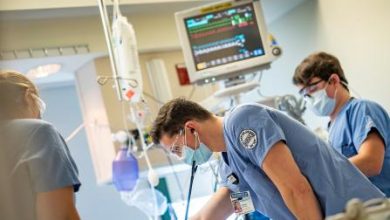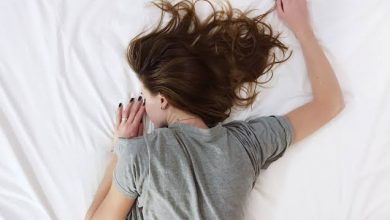Complex Sleep Apnea Syndrome Treatment

Complex Sleep Apnea Syndrome Treatment: It can be difficult to comprehend sleep apnea. Unfortunately, not all medical professionals have a thorough understanding of all diagnosis. This may result in expensive and pointless tests and procedures. Keep scrolling.EnoughInfo.com

Understanding the symptoms and warning signs of one particular condition, complicated sleep apnea, is crucial. What exactly is complicated or treatment-emergent sleep apnea? Learn about this ailment, its symptoms, its causes, how it is diagnosed, the best cures, and whether or not it even requires treatment.
What is complex Sleep Apnea?
- Complex sleep apnea, also known as treatment-emergent central sleep apnea or mixed sleep apnea, is a type of sleep-disordered breathing characterized by a combination of obstructive and central sleep apnea events. How To Value Yourself
- Obstructive sleep apnea occurs when the airway is partially or completely blocked during sleep, leading to pauses in breathing and disruptions in sleep. Central sleep apnea, on the other hand, occurs when the brain fails to signal the muscles to breathe.
In complex sleep apnea, individuals with a history of obstructive sleep apnea who are being treated with continuous positive airway pressure (CPAP) therapy develop central sleep apnea events. This can happen when the CPAP pressure required to treat obstructive sleep apnea suppresses the natural breathing drive, leading to central sleep apnea events. How To Get Wax Out Of Candle Jar
Read Also: How To Treat Shift Work Sleep Disorder
FAQs & Answers on Complex Sleep Apnea Syndrome Treatment
1. Is complex sleep apnea genetic?
Obstructive sleep apnea has a variety of complex reasons. Many of the genetic, health, and lifestyle factors that contribute to this condition have not yet been identified. According to studies, the likelihood of acquiring the illness is increased by several small-effect gene variants.22 Ways To Fall Asleep Fast (The Ultimate guide on Beating Insomnia)
2. What should I do if I’m not getting relief from my current treatment for complex sleep apnea?
It is important to talk to your healthcare provider if you are not getting relief from your current treatment. They may need to adjust your treatment plan or try a different type of PAP device. How To Respect Yourself
3. Are there any natural remedies that can help with complex sleep apnea syndrome?
While there is limited evidence to suggest that natural remedies such as herbal supplements or essential oils may be helpful in reducing the severity of sleep apnea symptoms, they should not be used as the primary treatment for complex sleep apnea syndrome.
Extensiveness
With CPAP or even bilevel therapy, complex sleep apnea may be very common during the initial treatment phase. These central apnea episodes are neither caused by heart failure or stroke, nor are they better explained by the use of drugs (such as narcotics or opioid painkillers).How To Be Healthy And Active
Each awakening from sleep may be followed by an episode of post-arousal central sleep apnea. There may be a high number of arousal’s from sleep. These occurrences are more frequently observed during non-REM sleep, and stage 3 or slow-wave sleep may marginally ameliorate them.
How widespread is complicated sleep apnea? Answering this question is challenging. Due to the fact that the condition frequently resolves in a variety of ways as PAP therapy is continued, the true incidence and degree of persistence are not well known. How To Precondition Tesla Battery
As they begin using CPAP therapy, between 2% and 20% of people are thought to develop complex sleep apnea; this condition may manifest more frequently on the first or second night of use. As a result, it can be over-identified as a sleep centre titration research. Fortunately, only about 2% of people still experience it after receiving therapy.
Read Also: How To Treat Rem Sleep Behavior Disorder
Causes of complex sleep apnea
The exact cause of complex sleep apnea is not well understood. However, it is thought to result from a combination of factors that contribute to both obstructive and central sleep apnea.How to Have a Healthy Brain( Requirements)
Some of the factors that may contribute to complex sleep apnea include:
Obesity
Excess weight can cause fatty tissue to accumulate around the airways, leading to obstructive sleep apnea. Obesity can also affect the respiratory control system, leading to central sleep apnea. How To Conduct A SWOT Analysis For A Small Business
Read Also: 11 Ways To Gain Healthy Weight Fast Naturally(2023 Guide)
Anatomical abnormalities
Certain anatomical features, such as a narrow airway, enlarged tonsils, or a deviated septum, can contribute to both obstructive and central sleep apnea.
Neurological disorders
Neurological disorders such as stroke, multiple sclerosis, and Parkinson’s disease can affect the respiratory control system, leading to central sleep apnea.
Medications
Certain medications, such as opioids, sedatives, and tranquilizers, can affect the respiratory drive and contribute to central sleep apnea.
Prior treatment for obstructive sleep apnea
Some people who have been treated for obstructive sleep apnea with positive airway pressure therapy, such as CPAP, may develop central sleep apnea as a result of the therapy. How To Induce Labor(The Ultimate Guide)
Complex sleep apnea’s specific causes are not fully understood. The issue may be caused by a variety of factors; not all of them are related to CPAP therapy. Due to instability in their breathing regulation, certain people may be prone to the illness. It might happen more frequently in people who have trouble staying asleep, like those who have insomnia. Low carbon dioxide levels in others appear to cause it. How To Remove Nicotine From Your Body
Read Also: How To Cure Hemolytic Uremic Syndrome(2023 Guide)
Symptoms of complex sleep apnea syndrome
The symptoms of complex sleep apnea syndrome can vary from person to person, but they typically include a combination of obstructive sleep apnea and central sleep apnea symptoms. Some common symptoms of complex sleep apnea syndrome may include:
- Loud snoring
- Pauses in breathing during sleep
- Gasping or choking during sleep
- Excessive daytime sleepiness
- Morning headache
- Difficulty falling or staying asleep
- Restless sleep
- Waking up feeling tired or unrefreshed
- Difficulty concentrating or remembering
- Mood changes, such as irritability or depression
If you are experiencing any of these symptoms, it is important to talk to your healthcare provider to determine the underlying cause and appropriate treatment. How To Stop Being Naive(Step by Step)
Complex sleep apnea syndrome treatment
Positive airway pressure therapy
The primary treatment for complex sleep apnea syndrome is positive airway pressure (PAP) therapy. This involves the use of a device that delivers air pressure to keep the airway open during sleep. Different types of PAP devices are available, including continuous positive airway pressure (CPAP), bi-level positive airway pressure (BiPAP), and adaptive servo-ventilation (ASV). The choice of device depends on the severity and type of sleep apnea.
Oxygen therapy
Oxygen therapy may be used in combination with PAP therapy for people who have low levels of oxygen in their blood during sleep.
Read Also: How To Put A Baby To Sleep
Oral appliances
Oral appliances may be used in people who have mild to moderate obstructive sleep apnea or who are unable to tolerate PAP therapy.
Lifestyle changes
Lifestyle changes, such as weight loss, avoiding alcohol and sedatives before bedtime, and sleeping on your side, may be helpful in reducing the severity of sleep apnea.
Surgery
Surgery may be an option for people who have structural abnormalities in the airway that contribute to obstructive sleep apnea.
Treatment of underlying medical conditions: Treatment of underlying medical conditions, such as heart failure or neurological disorders, may be necessary to improve central sleep apnea.
It is important to work closely with your healthcare provider to determine the best treatment options for your specific situation. Regular follow-up appointments may be necessary to monitor the effectiveness of treatment and make any necessary adjustments. How To Change Font On iPhone
When to see a doctor
Consult a doctor if you experience any of the following central sleep apnea signs or symptoms, or if your partner does.
- Breathlessness that wakes you up from sleep
- breathing pauses while you’re asleep Having trouble staying asleep
- excessive daytime sleepiness that could make you nod off while working, watching television, or even while driving
Consult your doctor if you have any sleep issues that cause you to feel tired, sleepy, or irritable all the time. Other conditions such chronic sleep deprivation, narcolepsy, or obstructive sleep apnea can cause excessive daytime sleepiness. You may also experience sudden episodes of sleep (sleep attacks), excessive daytime sleepiness, or all of these conditions.
Read Also: 22 Ways To Fall Asleep Fast (The Ultimate guide on Beating Insomnia)
Conclusion
In conclusion, complex sleep apnea syndrome is a sleep disorder that involves a combination of obstructive and central sleep apnea. The primary treatment for complex sleep apnea syndrome is positive airway pressure (PAP) therapy, but other treatment options may also be used depending on the severity and type of sleep apnea. It is important to work closely with your healthcare provider to determine the best treatment options for your specific situation and to regularly monitor the effectiveness of treatment.
Recommended;
22 Ways To Fall Asleep Fast (The Ultimate guide on Beating Insomnia)




